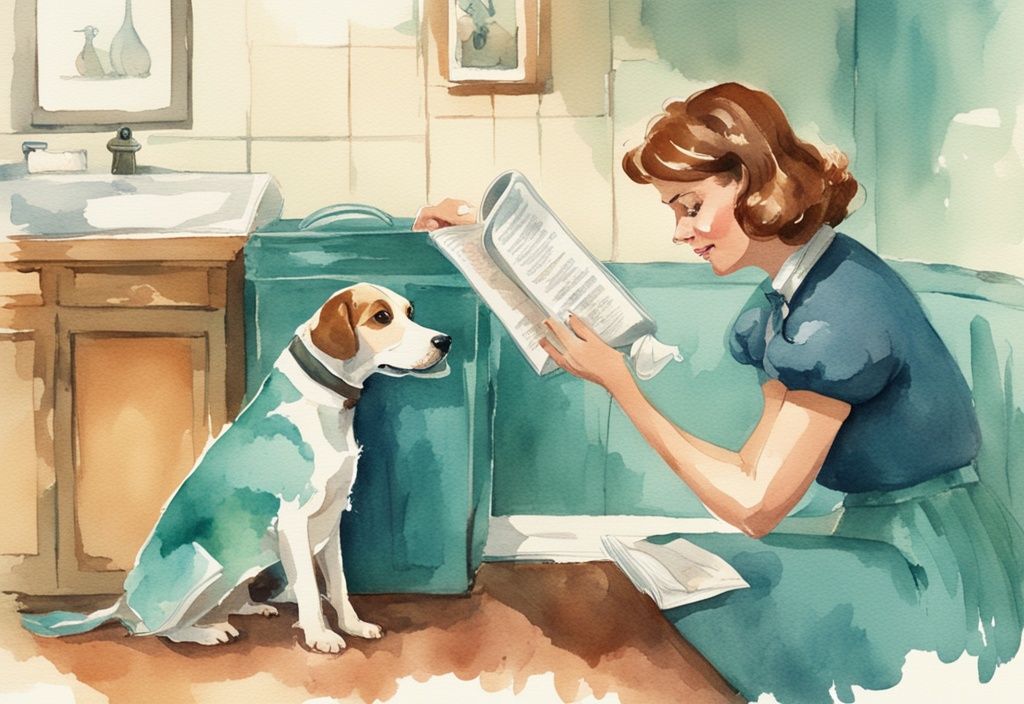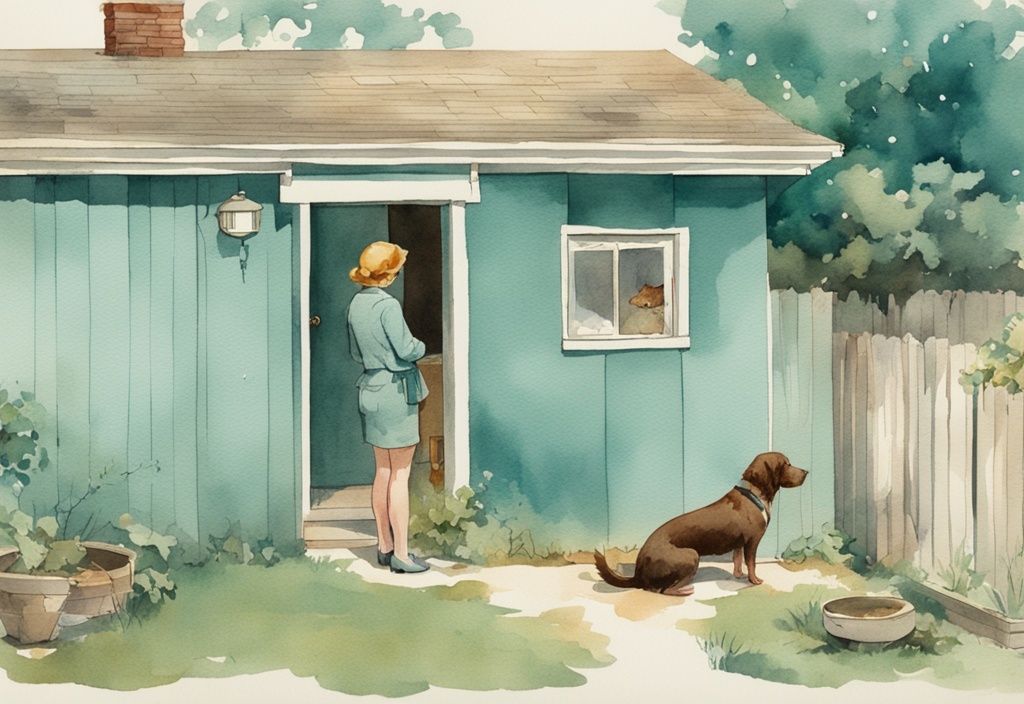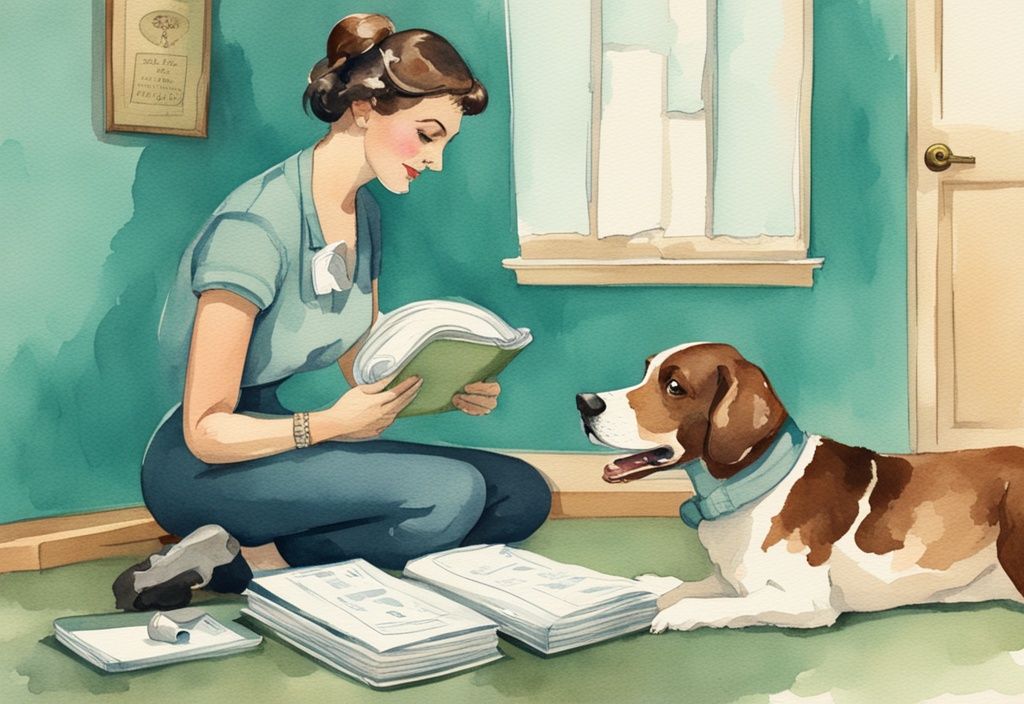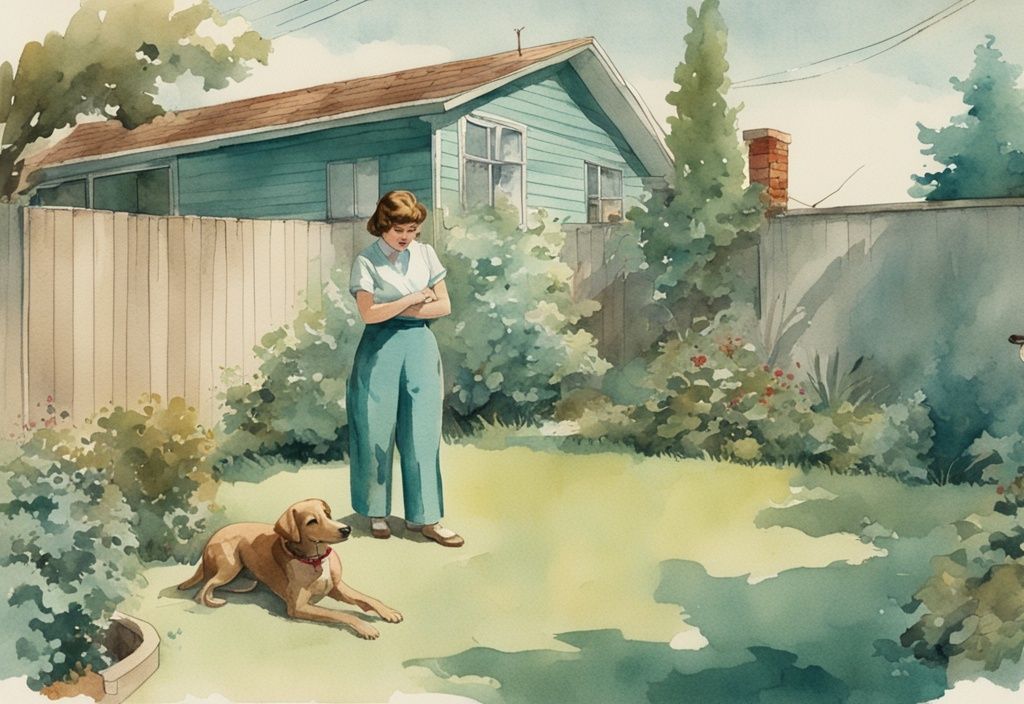Ever looked at your dog and thought, “Why on earth is my furry buddy heading to the yard yet again?” It’s bewildering, I know! But excessive pooping in dogs is more common than you’d think, and often a sign of deeper issues that might be affecting your pet’s health. You’re not alone, and I’m here to help make sense of it all, with comprehensive insight into this perplexing problem.
We’ll delve into everything – dietary influences, age implications, stress impacts, and even potential medical conditions. Unraveling the mystifying factors impacting your dog’s heavy-duty pooping cycle and arriving at practical solutions is our mission with this article.
By the end, you’ll not only gain a thorough understanding of your beloved pet’s digestive function but also discover how to improve it. Buckle up, fellow dog-lovers – we’re going to decode the mystery of your canine’s frequent toilet trips together!
Unveiling the Common Reasons for Your Dog’s Increased Bowel Movements
Have you ever wondered, “Why is my dog pooping so much?” Let’s explore some of the most common reasons behind this peculiar behavior.
Impact of Age on Dog’s Pooping Frequency
Dogs typically poop 1-3 times per day, but this frequency can vary quite a bit depending on their age.
The Pooping Pattern in Puppies
Oh, puppies! They sure know how to keep us busy. Puppies naturally have a higher frequency of bowel movements, sometimes 4-6 times daily. Their small digestive systems and high metabolic rate are working overtime. Various factors such as diet, activity levels, and overall health can influence this frequency. Keeping an eye on these can help maintain a healthy pooping pattern in your little one and help you catch any issues early.
Noticing Changes in Your Older Dogs
As dogs get older, their pooping frequency usually decreases. Many older dogs poop about once a day. But remember, changes in diet, medication, or underlying health conditions can alter this frequency. Regular vet check-ups and keeping a close watch can ensure your senior pup stays healthy and comfy.
Dietary Aspects That Influence Your Dog’s Pooping
Diet plays a pivotal role in your dog’s digestive health. Sudden dietary changes, overeating, and even what they’re munching on during walks can all influence how often they poop.
Effects of Sudden Dietary Changes
Changing your dog’s food suddenly can upset their digestive system, leading to increased pooping. Transitioning to new food should be done gradually over 5-10 days to avoid digestive issues. Monitoring your dog closely during this period can help you identify any potential food sensitivities or preferences.
Overeating and Non-Food Consumption: A Saboteur
Let’s face it, dogs will be dogs. Overeating can overwhelm their digestive systems, leading to frequent bowel movements. And if your curious pup decides to munch on non-food items like sticks, grass, or dirt, expect some gastrointestinal upset. Keeping an eye on their diet and ensuring they steer clear of non-food items is key to their digestive health.
The Downside of Sharing Your Meal with Your Dog
Feeding your dog table scraps or human food might seem harmless, but it can wreak havoc on their digestive tract. Many human foods contain additives, preservatives, or ingredients unsuitable for dogs, causing digestive issues and increased pooping. Sticking to dog-specific food and treats helps maintain stable digestive health and regular bowel movements.

Health Matters: Medical Reasons Behind Increased Pooping
Disease and health conditions can also affect how often your dog needs to poop.
The Role of Bacterial Infections
Bacterial infections such as Salmonella or E.coli can cause digestive issues like loose stools, lack of energy, and an upset stomach. These infections often result in increased pooping and require prompt veterinary attention.
Intestinal Parasites: A Common Culprit
Parasites like hookworms, roundworms, tapeworms, whipworms, and giardia are common troublemakers. They can lead to increased pooping, diarrhea, visible worms in stool, and weight loss. Diagnostic testing and proper treatment from your veterinarian are essential to address these issues effectively.
Certain Infectious Diseases and Their Impact
Infectious diseases such as parvovirus or canine distemper can significantly increase a dog’s pooping frequency and alter stool consistency. These diseases often present with additional symptoms like vomiting and severe lethargy and require immediate veterinary care.
Medication Plus Supplements: A Double-Edged Sword
Medications and supplements, though beneficial for other health concerns, may cause digestive disturbances. These disturbances can lead to increased pooping. Always consult your vet about potential side effects and observed changes in pooping patterns after starting new medications or supplements.
Moving Beyond the Symptom: Uncovering Underlying Health Conditions
Chronic conditions such as inflammatory bowel disease, pancreatitis, liver or kidney disease, and diabetes can alter a dog’s pooping frequency. These conditions often have other accompanying symptoms, and management typically requires ongoing veterinary care. Monitoring your dog closely and maintaining regular veterinary check-ups can help manage these health issues effectively.
Lifestyle Changes: A Determining Factor in Increased Bowel Movements
Shifts in your dog’s lifestyle can also play a significant role in their bowel movement frequency.
The Influence of Activity Levels on Pooping Frequency
Have you noticed your dog’s poop schedule changing with an increase in physical activity? Increased exercise can stimulate their digestive system, causing more frequent pooping. Adjusting to new exercise routines may temporarily change your dog’s bowel movements. Keeping their activity level consistent and providing a balanced diet can help regulate this frequency over time.
Anxiety or Stress Causing Excess Pooping
Stress or anxiety can significantly impact your dog’s digestive health. Emotional distress can disrupt their immune system, leading to diarrhea, constipation, or increased poop volume. Identifying and minimizing sources of stress, along with providing a stable, reassuring environment, is crucial for maintaining a healthy digestive routine.
By understanding these various factors, you can maintain your dog’s health more effectively and address the common question of “why is my dog pooping so much” with informed insight and proactive care.

Managing Your Dog’s Pooping: Practical Solutions
Nothing quite disrupts the joy of dog ownership like unexpected or excessive pooping. With a few thoughtful adjustments, you can manage and potentially reduce your dog’s bowel movements. Here, we’ll explore practical solutions to maintain stable pooping habits.
Dietary Management for Stable Bowel Movements
Steer Clear from Pooping Woes with Fresh, Whole-Food Ingredients
Your dog’s diet is the cornerstone of their digestive health. Ensuring that your furry friend receives a diet composed of fresh, whole-food ingredients can work wonders. These high-quality diets, packed with essential nutrients and free from fillers or artificial additives, promote efficient digestion. By minimizing waste, you’ll often see improved stool quality and fewer bowel movements. This can be especially helpful when you’re puzzled by the question, why is my dog pooping so much?
Transitions in Diet: A Smooth Move toward Improved Digestion
Introducing new food abruptly can wreak havoc on your dog’s digestive system, often resulting in more frequent pooping. It’s crucial to make any dietary transitions gradually over 5-10 days. This gentle switch helps to minimize digestive upset and stabilize bowel movements, ensuring your dog adjusts smoothly.
Creating a Safe Environment for Your Dog
Keeping Harmful Items at Bay
A safe environment is essential to prevent gastrointestinal distress in your pet. If your dog ingests non-food items like sticks, twigs, dirt, or grass, it can lead to digestive issues, possibly answering why is my dog pooping so much. Vigilance and consistent checks of your dog’s surroundings can help safeguard their tummies.
Fresh Water: Not Only for Thirst
Hydration plays a pivotal role in your dog’s digestive health. Always provide access to clean, fresh water to prevent dehydration, which can affect stool frequency. Adequate hydration supports healthy digestion, maintaining a regular pooping schedule, and addressing any concerns about increased bowel movements.
Keeping an Eye on Your Pet’s Health and Behavior
Checking the Poop: The First Step to Diagnosis
Keeping an eye on your dog’s poop will give you valuable insights into their digestive health. Noting changes in color and consistency can help track down problems that might be causing frequent pooping. Early recognition can mean quicker intervention and a healthier, happier pet.
Frequency Changes: Red Flags to Watch Out for
Is your dog suddenly pooping more often? Look into recent changes in their diet, exercise routine, or environment. These factors may reveal why your dog’s bowel movements have increased, allowing you to make necessary adjustments in time.
When to Call the Vet: Understanding Timing and Treatment
Recognizing the Right Time to Seek Professional Help
If your dog’s excessive pooping persists or is accompanied by concerning symptoms like lethargy, vomiting, or blood in the stool, it’s time to consult your vet. These could signal more serious health issues needing professional evaluation.
Navigating Diagnostic Tests and Treatments
Your vet may recommend stool testing to pinpoint the causes of increased pooping. Treatment plans will be personalized to address any diagnosed conditions, aiming to normalize your dog’s bowel movements and ensure their overall well-being.

Handy FAQs to Decipher Your Dog’s Pooping Dilemma
Understanding why your dog is pooping so much can bring peace of mind and help you address any underlying issues effectively; you can learn more about normal pooping frequency and what to look for here. From normal pooping frequency to emergency procedures, let’s explore the ins and outs of your dog’s digestive health.
Normal Pooping Frequency for a Healthy Dog: Setting the Benchmark Right
- Most dogs poop 1-3 times daily. Puppies, on the other hand, tend to poop more often—about 4-6 times a day. Their rapid metabolism and smaller digestive systems are the culprits behind this higher frequency.
Emergency Procedures: What If My Dog Is Pooping More?
- If your dog starts pooping more frequently than usual, consider any recent changes in their diet, levels of stress, or if they’ve ingested non-food items. If issues persist or other symptoms like lethargy or blood in the stool appear, a vet visit is a must.
Can Stress Really Make Your Dog Poop More?
- Yes, stress or anxiety can affect your dog’s immune system and digestive health. This can lead to increased poop volume, diarrhea, or constipation. Keep an eye on any environmental changes that might be causing stress.
Do Puppies Naturally Poop More?
- Absolutely. Puppies naturally have more frequent bowel movements—usually 4-6 times per day. Their smaller digestive systems and higher metabolism speed up the digestive process.
Dietary Tweaks to Manage Your Dog’s Pooping Frequency
- Offering high-quality food with fresh ingredients can enhance digestion and lower pooping frequency. Make sure to transition to new food gradually over 5-10 days to prevent digestive upset. Consult your vet for tailored dietary advice, especially if your dog has specific fiber needs.
In Conclusion: Your Comprehensive Guide to Managing Dog’s Pooping
- Understanding the myriad of potential factors affecting your dog’s pooping frequency is essential for effective management. Numerous variables can influence why your dog is pooping so much. Characteristics such as age, diet, health conditions, and lifestyle changes all play a significant role. Young puppies tend to have more frequent bowel movements due to their smaller digestive systems and higher metabolism. On the other hand, older dogs typically poop less but may experience changes due to dietary adjustments or health issues. Recognizing these patterns helps in identifying normal versus concerning behaviors.
- Maintaining a consistent diet, providing a safe environment, monitoring health, and consulting a vet when necessary are key steps to ensure your dog’s digestive health and overall wellbeing. Keeping your dog’s diet stable with high-quality, whole-food ingredients minimizes digestive disruptions and reduces unnecessary pooping. Gradual transitions between foods over a 5-10 day period can help avoid gastrointestinal upsets. Furthermore, ensuring a safe environment by preventing the ingestion of harmful objects and providing fresh water is crucial. Regular health check-ups and monitoring your dog’s poop for any changes in color, consistency, or frequency help in early detection of potential health issues. Consulting a veterinarian when changes are persistent or accompanied by other symptoms ensures your dog receives appropriate care.
